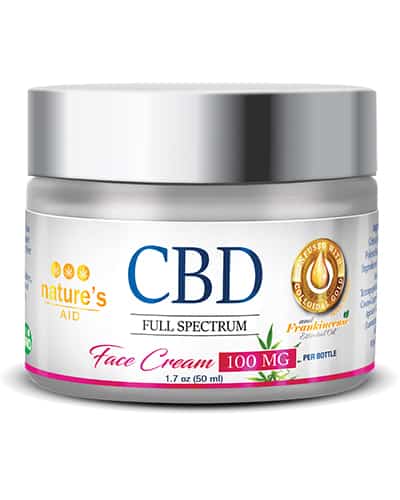
CBD products that have been marketed for human consumption, particularly those for food-producing animals, are raising concerns. FDA is considering whether to enforce federal drug and food laws. Many questions should be asked, such as whether a company is in violation of FDA labeling regulations. This article focuses on the current state of the matter.
FD&C Act violations of FD&C Act
A FDA warning letter was sent to five companies recently stating that they were in violation of the FD&C Act when they used CBD in any of their products. CBD is a nonpsychotropic substance found in Cannabis Sativa plants. According to the FDA, the companies were marketing illegally their CBD products as medical treatment.
Since the FDA's warning letter, several companies that market CBD products have been shut down. These companies claimed that CBD products could treat, prevent, diagnose, and/or mitigate serious diseases. These products were also being marketed to consumers as dietary supplement, which is a violation the FD&C Act.

The FD&C Act prohibits the introduction of CBD products as OTC drugs, but does not prohibit their sale as a food supplement. However, CBD products must meet specific requirements for marketing without an approved new drug application.
Concerns over CBD products being sold to animals that produce food
FDA expressed concerns about CBD products being promoted for use in food production. These concerns include the possible presence of harmful residues in meat. The FDA is also lacking information about safe levels of CBD products in food-producing animal and how they interact with other FDA-approved drugs.
Apex Hemp Oil is one of many CBD companies that the FDA has sent warning letters. The FDA asked that companies respond within 15 calendar days to any concerns it has. Otherwise, they could face legal action. Also, the FDA encouraged companies to report any adverse reactions that may have occurred through the MedWatch program.
FDA continues to send warnings to CBD-product sellers. The agency has sent out 14 warning letters this year. This is a warning that companies are selling unapproved animal drugs.

Enforcement of FD&C Act against CBD products
FDA is pursuing enforcement for the FD&C Act against CBD-infused products. Companies that sell CBD-infused dietary supplements have received warning letters from the FDA. CBD is a controlled chemical that has been subjected a lot of clinical research but has not yet been approved as a medication. According to FDA, CBD's use as a food ingredient undermines the drug approval process. This reduces commercial incentives and increases the cost of clinical trials. Additionally, it raises safety concerns for consumers.
The FDA began investigating companies that sell CBD products in the last two years. Some companies have already received warning letters from the FDA for marketing CBD products without proper licensing or approval. The CBD products at issue were designed to alleviate, treat or reduce serious illnesses, but they were not approved as new medicines. This places patients at high risk for side effects, and can make it dangerous to public safety.
FAQ
Is CBD a good company to invest?
As people learn more about the benefits of hemp-based products, the market for them continues to grow. The market for hemp-based products could reach $1 billion by 2022, according to estimates.
The market is expected to continue growing at over 20% per year until 2020 when it reaches $2.5billion.
Hemp oil is already used in many beauty and health care products such as lotions, shampoos, lip balms, moisturizers, body butter, and skin creams.
There are also several companies producing CBD-infused beverages, snacks, pet foods, dog treats, and other food items.
CBD is currently legal across all 50 states. But, this may change in the near future. CBD is legal in all 50 states, but more research will be conducted to determine its potential uses. Businesses will have an easier time operating legally.
With these factors in mind, it's clear that investing in CBD can be a lucrative venture.
What are some of the best CBD brands to buy?
These top CBD brands have been hand-picked by us based on their quality, reliability, value, and other criteria.
They provide high-quality CBD oils that have less than 0.2% THC.
We also recommend checking out our list of the best CBD sellers worldwide.
Where can I purchase CBD products?
CBD can be bought online or at your local retailer. Online retailers offer better deals. You will find that many websites sell CBD products made using industrial hemp, which contains less than 0.3% THC.
If you prefer to shop locally, look for brick-and-mortar businesses that specialize in selling CBD products.
There are laws in many states that allow CBD products to be purchased without the need of a prescription. CBD products may be available at your local pharmacy if the state you reside is one of them.
CBD products could even be delivered to your home.
Are there any studies that CBD can reduce anxiety?
CBD oil can be used to treat anxiety. It interacts with CB1 receptors and CB2 receptors in your brain. The endocannabinoid (Endocannabinoid) system regulates mood, stress and responses.
CB1 receptor is activated when our bodies feel anxious. When activated, this receptor sends signals to the amygdala, which is responsible for emotional processing.
When the CB1 receptor is blocked, the amygdala doesn't receive the signal to process emotions. CBD users have less negative feelings.
A 2017 study revealed that CBD lowers anxiety in patients suffering from social phobia. Another study found that CBD reduced symptoms of PTSD.
An 2018 review found that CBD is anxiolytic and can help with generalized anxiety disorder.
Another review suggested that CBD might also reduce panic attacks.
However, multiple studies have shown that CBD does increase anxiety in mice.
Researchers believe this discrepancy in animal data and human data could be due to differences between humans and dogs' responses to CBD.
There are no long-term safety studies available for CBD. Most experts agree that CBD can be safely used when it is directed.
Is the CBD market saturated or not?
CBD is seeing a steady growth rate of 25 percent annually. This growth is expected not to stop for at least five more years. In fact, the industry is projected to grow from $2 billion today to $5 billion by 2020.
Canndoc Ltd and GW Pharmaceuticals are the dominant players in the CBD market. Both companies have a focus on creating pharmaceutical-grade products. They have not been very effective so far. They are both struggling to gain traction in the marketplace.
Cannabidiol, or CBD (cannabidiol) is a cannabis extract that contains less 0.3% THC. It does not produce any psychoactive effects. It is used as a treatment for epilepsy and other medical conditions. It is also commonly used as a dietary supplement.
There are many options for CBD products. Some CBD products are made from whole plant extracts while others contain CBD.
These products all share one thing in common: low levels are THC.
They are therefore legal under US federal law. However, this doesn't mean that you don't need to follow local laws when selling CBD products. You should always check with your state's regulations regarding the sales of CBD products.
There are also several states that CBD products are prohibited. These are California, Colorado. Florida. Mississippi. Missouri. New York. North Carolina. Ohio. Oklahoma. Oregon. Rhode Island. South Dakota. Texas. Utah. Virginia. Washington.
CBD products shouldn't be used if you live in any of these states.
Statistics
- however, one study also found that these effects were virtually abolished when the original media (a nutrient broth agar) was replaced with one containing 5% blood (increasing the minimum concentration to ~160 μM CBD) [179]. (ncbi.nlm.nih.gov)
- A recent study [161] also found that in vitro CBD treatment (i.e., ≤ 2 h exposure to 10 μM) induced ~40% vasorelaxation in isolated (pre-constricted) (ncbi.nlm.nih.gov)
- OralWhere HED is the human equivalent dose, and Km is a correction factor estimated by dividing the average body mass (BM) of the species (60, 0.020, and 0.150 kg for 11 humans, mice, and rats, respectively) and by its surface area (see: Nair et al. (ncbi.nlm.nih.gov)
- While the primary injury may not be treatable, interventions that attenuate secondary sequelae are likely to be of benefit [203].Only one study (ncbi.nlm.nih.gov)
- HR −16 mmHg; 95% CI −26, −6; I2 = 92%) (ncbi.nlm.nih.gov)
External Links
How To
What are the common issues in the CBD industry?
The current market for CBD products is growing at an incredible rate. However, this market is still full of challenges for businesses that want to expand. These include a lack of consumer awareness, high cost of entry, limited access to capital, and regulatory uncertainty.
Many consumers do not know what CBD is or how it works. They are unable to make an informed decision about buying CBD products.
Most CBD companies rely heavily upon word-of mouth marketing. This is expensive because it requires paying for advertising and hiring staff to promote their brand.
High production costs are another problem facing new entrants in the CBD industry. CBD products require a lot of raw materials. CBD oil can only be made if hemp is grown in the right climate and soil conditions.
To grow enough hemp for CBD oil production, it costs approximately $1,000 per acre. As a result, many small farmers cannot afford to start.
A lack of capital access is another problem that CBD market newcomers face. Due to the stigma surrounding the industry, banks discourage many people who wish to start businesses.
Final, there are regulatory uncertainties surrounding the sale CBD products. There are currently no clear guidelines regarding how CBD products should be marketed.
Although states have passed laws restricting CBD products sales, these policies are not yet national.
Only two states, Nevada and Maine, have yet to legalize recreational marijuana.
However, some states like Massachusetts and Michigan are considering similar measures.
These changes could lead to increased competition between CBD manufacturers.
As a result of these factors, many entrepreneurs choose to work from home rather than start a physical business.